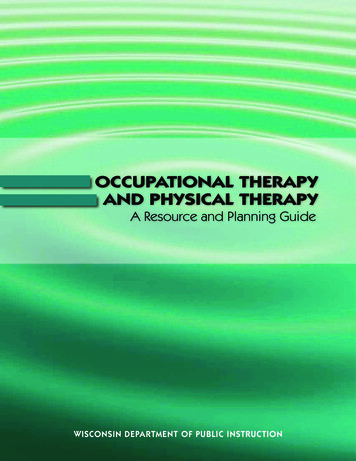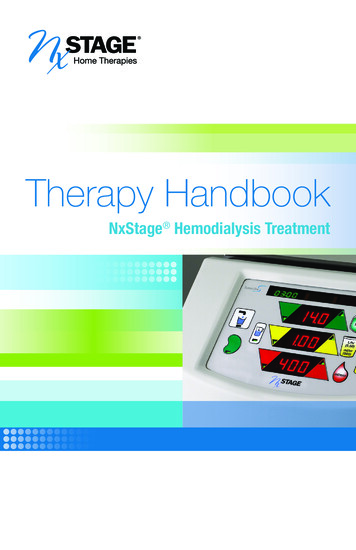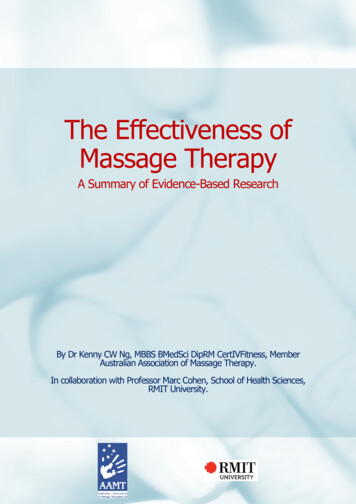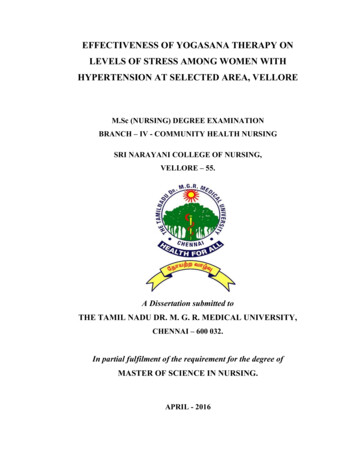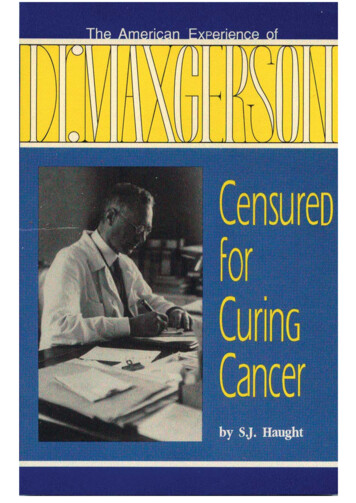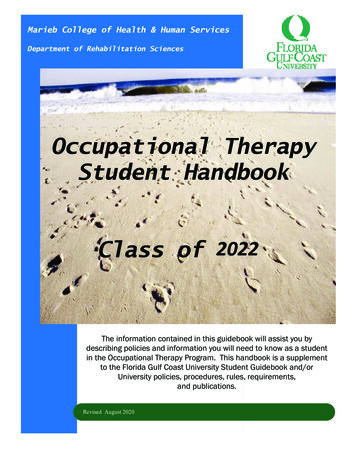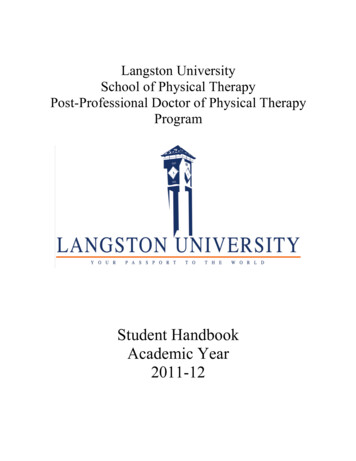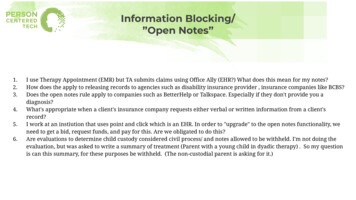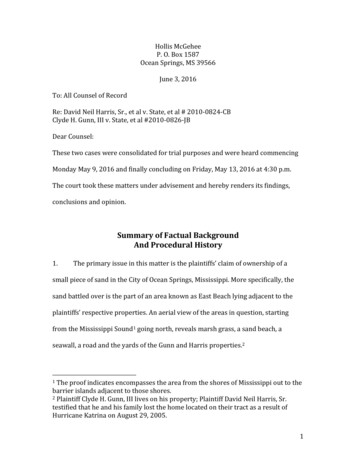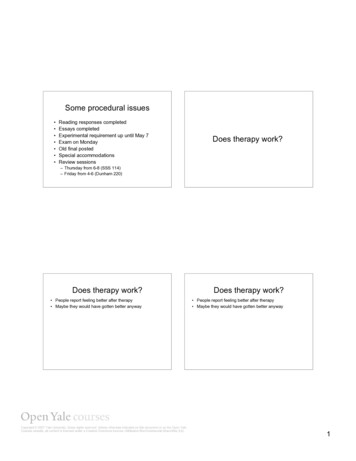
Transcription
Some procedural issues Reading responses completedEssays completedExperimental requirement up until May 7Exam on MondayOld final postedSpecial accommodationsReview sessionsDoes therapy work?– Thursday from 6-8 (SSS 114)– Friday from 4-6 (Dunham 220)Does therapy work?Does therapy work? People report feeling better after therapy Maybe they would have gotten better anyway People report feeling better after therapy Maybe they would have gotten better anyway1
General conclusions abouttherapy effectiveness People in treatment do better than those not Some types of therapy work better forspecific problems– cognitive-behavioral for major depression– Medication for bipoloar disorderNonspecific factors in therapyeffectiveness Nonspecific unrelated to specific principles butcritical to outcome Support– acceptance, empathy, encouragement, guidance Hope– sense of faith in therapy process– placebo effect improvement from belief, rather than actualeffect Some therapists are better than othersHow happy are you?Happiness From a scale from 1 to 10.The most common answers are 7 and 8No big differences for age, place, or sex42 countries:-- none under 5-- most happy: Swiss (8.39)-- most miserable: Bulgarians (5.03)-- Americans (7.71)2
A bit of caution:Ratings can be unreliable Group A found a dime on a photocopy machineGroup B did not.“How good is your whole life?”Group A reported greater happiness in their entirelives Effects of sunny days (Unless they asked “How’s the weather?”)What is happiness? What is happiness for? Goal-state that animals have evolved topursue; signal that needs have been satisfied E.g., Hunger vs. satiation Pinker:“We are happier when we are healthy, wellfed, comfortable, safe, prosperous,knowledgeable, respected, non-celibate, andloved.”But it is not so simple Americans in the 21st century are healthier,better-fed, etc. than just about anyone inhistory But no happier People are not happier than in the 1950s, orin relatively poor countries Also, this are individual differences inhappiness even among people whose basicneeds are met How do we explain this? Some surprising facts about happiness 1. Happiness doesn’t changeas much as you think3
What is the worst thing thatcan happen to you?How happy are you? Set-point Genetically-determined range(identical twins raised apart ) Happiness is highly heritable What about life events? How much would it change your happiness?What is the best thing thatcan happen to you? How much would it change your happiness?Life events ParaplegicsLottery winnersGetting or not getting tenurePresident Bush versus President KerryConsumer purchases4
Why don’t these eventsmatter as much we think wewill?“I hated life ”1. Failure to appreciate day-to-dayirrelevance of certain events2. The logic of the set-point--- we adapt to bad things(with some surprising exceptions)--- we adapt to good things(with some surprising exceptions)“All is vanity and a chasing afterwind, and there is nothing to begained under the sun.”Implications of the hedonictreadmill Possessions are not the key to happinessALTERNATIVE 1: Endless noveltyALTERNATIVE 2: Step off the treadmillSeek out more substantialgoodsFriends and family; long-termprojects5
2. Happiness is relativeMoney, power, and happiness There exists a set-point (or range)But there is some effect of your salary andyour job on your happiness*** If you are desperately poor, you will beunhappy Beyond that, your happiness is based onyour relative circumstancesHappiness is relative A wealthy man isone who earns 100 more than hiswife’s sister’shusband.Happiness is relative(a) 70,000, if everyone else in your office wasmaking 65,000(b) 75,000, if everyone else in your office wasmaking 80,000Summary so far Research with British social servantsNegotiating tips from Maria Callas and StanleyFish6
Advice for the king SSRIs and cognitivebehavioral therapy Move the castle to aquieter part of thekingdom Give up on concubines.Find a queen. Join aclub. Get involved incharitiesWhich is worse?(a) A dental procedure that is very painfulfor an hour.(b) A dental procedure that is very painfulfor an hour.sAnd then some additional mild pain.3. Our judgments about thepleasure and pain of pastevents are skewed ininteresting waysWhich is better?(a) A party that is hugely fun at thebeginning but ends badly(90% good, 10% bad)(a) An awful party that ends well(90% bad, 10% good)7
Summary of pleasure studies Endings matter8
Two bigger lessons HumilityTwo bigger lessons Humility Optimism9
2. Happiness is relative Money, power, and happiness There exists a set-point (or range) But there is some effect of your salary and your job on your happiness *** If you are desperately poor, you will be unhappy Beyond that, your happiness is based on your relative circumstances
